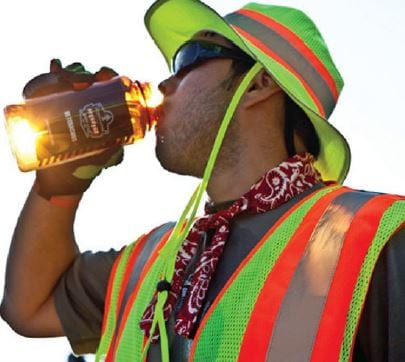As the weather changes from season to season, each brings its own inherent risk. Below a few hazards during the summer months and what you can do to protect yourselves.
Sun & Heat—Risks from sun and heat include sunstroke, dehydration, and sun burns. When heat poses a danger to you, make sure that you stay hydrated, and take breaks in the shade whenever possible.
Poor Air Quality— During the summer, air quality may be decreased by environmental factors like allergens, dust, and debris. To avoid poor air quality in the summer, try to plan any trips outdoors for the coolest, driest times of the day, typically the morning or evening.
Extreme Weather— Just like the winter, summer has its own extreme weather conditions. Exposure to extreme heat can easily lead to dehydration—drink plenty of fluids (water not coffee as coffee is a diuretic and makes you pee).
Insect bites— If you are the person who is extremely allergic to insects, having an EpiPen available when working outdoors is a good idea. To help you avoid mosquito and insect bites that can cause skin irritation and possibly disease, bring mosquito and insect repellents.
Irritating Plants— Are you allergic to poison ivy or poison oak? The best preventative measure is to learn to identify these plants. If avoiding areas with these plants is not possible, closed-toe shoes, long sleeves, pants, and gloves can all protect your skin from these plant’s oils. If your clothing is exposed to these plants, wash the clothing thoroughly to avoid second-hand reactions.









